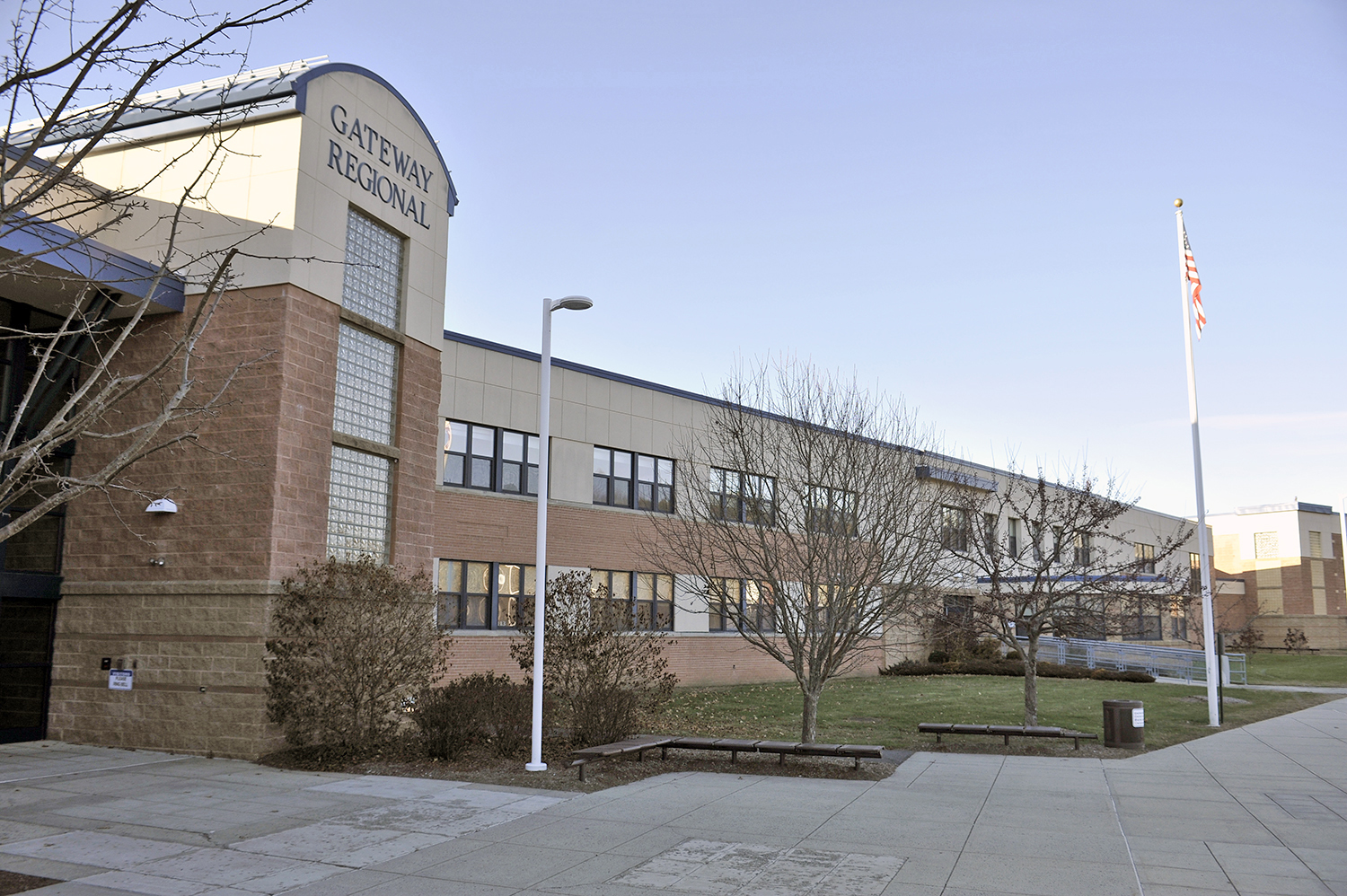HUNTINGTON – The Gateway Towns Advisory Committee met on Saturday in Stanton Hall to consider its continuing role in working with the Gateway School Committee, and in what other way it might be a leader in collaboration between the towns in the district.
Co-chair Derrick Mason of Russell acknowledged that a lot of time has been spent on looking at the impact of the Worthington withdrawal, and the lawsuit and injunction currently underway in the courts. Mason joined the suit as an individual pro se, as did GTAC and School Committee member Ruth Kennedy, also from Russell.
“An injunction freezes everything if successful,” Mason said. “One of our real goals is that all seven towns are happy with the withdrawal agreements before they withdraw.”
Co-chair Darlene McVeigh said there had been confusion in the towns around the need to change their bylaws in order to join the lawsuit as plaintiffs and share the cost of an attorney. All of the towns are defendants whether they join or not, because they are part of the regional agreement. GTAC had hoped that all of the towns would put the bylaw change on their annual meeting agendas but only three towns did: Huntington, Chester and Blandford. Huntington and Chester passed the bylaw change, and Blandford tabled it. The town of Huntington is already a plaintiff in the suit. Chester has to enter into the agreement now that the bylaw change has been made, and the town will also become a plaintiff.
“Our legal person was not up to speed, and was unclear on whether we should join,” Andy Montanaro, Blandford selectman said.
“You will need representation whether you stay as a defendant due to the regional agreement, or become a plaintiff,” Ed Renauld, Huntington selectman, said.
“I think it’s real important that all the towns join,” said Kennedy. “You can be taken from being a defendant to becoming a plaintiff, like the School Committee did.”
“Basically, the only path is to hire an outside attorney to go through the process to allow the town of Blandford to become a plaintiff,” said Tony van Werkhooven, Blandford Finance Committee member.
The bylaw change, which would require a special town meeting, would then allow the town to share the costs of the attorney with the other towns in the lawsuit.
“Russell has been named a defendant and has just sat back and done nothing,” Kennedy said. “That might be another option.”
“We need to continue these discussions (with the towns) and clarify it,” McVeigh said. “The Town of Huntington has had the main Gateway complex in its town, so we feel we have additional responsibilities. It’s always our police force and fire department that go up to the school.”
She cited money and lack of time as the main incentives for challenging Worthington’s withdrawal.
Mason then brought up two bills that are currently in the Senate that he said directly or indirectly address this issue, which is funding.
“I think we should be on board with both bills,” he said.
The first bill, No. 322, concerns unfunded mandates. This bill requires the Department of Elementary and Secondary Education to conduct an analysis of all new state laws, regulations or administrative directives, including the cost these laws and directives have on school districts and their employees, and the impact they have on time, on learning in the classroom and overall impact on improving student achievement. This bill already has support in the towns.
The second bill, No. 305, is an act to incentivize efficiencies in the education system through economies of scale. Basically, it offers financial incentives to school districts that form a Superintendency Union to consolidate certain administrative positions.
Montanaro asked David Hopson, Gateway district superintendent, what he thought of bill 305. Hopson replied that the Commonwealth’s minimum foundation is based on 5,000 students, and a 3,000 student high school.
“There isn’t one outside of Springfield,” he said.
“If that can’t possibly apply to us,” Mason said. “Then the state should mitigate.”
“There’s nothing that prevents the school from going to other districts and trying to consolidate some services,” McVeigh said. “But it has to be initiated by the school committee.”
“Right now, we don’t have the votes to look into it,” Kennedy said.
Joe Kearns of Middlefield pointed to Lenox and Lee.
“They’ve been trying to share resources,” he said, adding that they’ve had difficulty getting it done. “As Americans, we always expect to have more. The word enough doesn’t exist. Until there’s coherent leadership, and I don’t see it coming from the legislature. For us, it’s demographics.”
Kearns said that more than ten years ago, Gateway had 1,600 kids – now there are less than 1,000.
“That’s one of the reasons I’m glad to be here, so we can talk about it,” he said.
Mason said sharing services is “a win-win proposition,” and asked how proactive DESE was about it.
“They (DESE) don’t have time to be proactive,” Hopson said. “There’s nothing stopping schools from getting together. There’s no real incentive.”
“That being said, where do we see ourselves as being proactive?” Mason asked.
“We’ll continue the discussion, so when something comes up, we’ll be prepared,” Kearns said. “Right now, we’re looking a lot at the school situation, but we need to look at other things. The fire departments and ambulance service are good examples. We have to look beyond the school and see what else we can collaborate on.”
Mason agreed that the committee needed to expand its scope beyond the Worthington withdrawal, and let that take its course in the courts. It was agreed that the next meeting of GTAC would focus on shared services.


